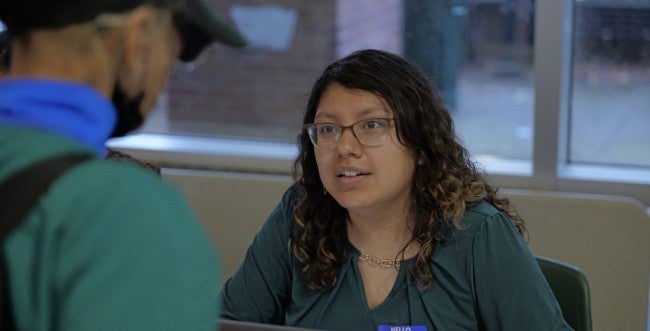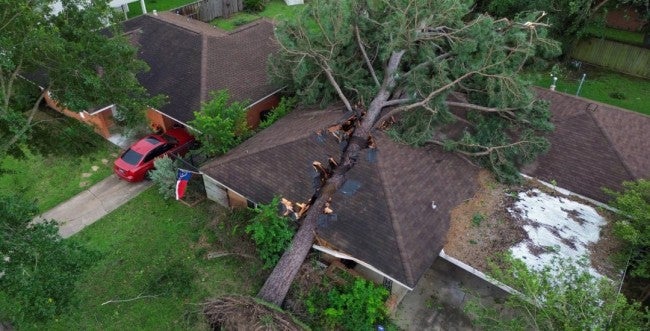Student homelessness is pervasive and hard to track. COVID-19 made things worse.
Before the pandemic hit in March 2020, Faith—a single mother with two children, one in third grade and one in fifth grade—worked at a sports stadium in Houston. Her focus at the time was “paying for a room and trying to pay for child care,” she stated during an interview. But after the pandemic began, the stadium canceled games and Faith found herself out of work. Not long afterward, she and her children were evicted.

With Robins Landing, Habitat for Humanity takes on a new role: master-planned community developer
City officials, home builders and affordable housing developers gathered in northeast Houston this week to celebrate a new model for mixed-income housing.

MacKenzie Scott’s unprecedented gift comes as students, teachers try to recover from pandemic’s toll
Earlier this month, Communities In Schools of Houston, a non-profit organization that has served the Houston community for over four decades, received an unprecedented financial gift.

Remembering Pat Oxford, a trusted adviser to governors, presidents—and urban researchers
When you move to a city you know nothing about in your late 50s and your job is to make sure your organization has a big impact on making that city better, you desperately need tour guides. I had many when I first arrived in Houston in 2014, but none helped me more than Pat Oxford, a longtime Kinder Institute Advisory Board member, who passed away Feb. 13 at the age of 79.

Winter Storm Uri showed how Harris County needs a tailored approach to disaster recovery
This week marks the first anniversary of an especially grim event in Texas’ history. Winter Storm Uri touched nearly every corner of the state with power outages that affected millions of people and led to at least 246 lives lost. Unofficial counts put the death toll at three times that number.

Houston’s newest housing development is big on neighborly ties
During the February freeze last year, stories of neighbor helping neighbor were easy to find. Residents with electricity offered up extension cords to charge phones, lent out gas generators to keep heaters going, delivered hot cocoa to keep their spirits up, or simply opened their homes for a few hours or a few days to provide shelter. But what if we didn’t wait until the next disaster to really know and help our neighbors?

A new book, “In Too Deep” tells the story of Bayou Oaks, and its repetitive flooding, from the perspective of 36 mothers who are raising young children there. It follows the families across the course of more than a year, starting right after Hurricane Harvey flooded their homes, and tracking them across the recovery year and beyond as they work to restore their community for the third time in three years.

Houston deserves a news ecosystem as big and bold as it is
Journalism is, at its core, a public service — and Houston could use more of it.

At first glance, Houston taxpayers seem to pay more into county coffers than it receives in services
Do property taxpayers inside the City of Houston subsidize Harris County services? It’s a question that comes up a lot, given the fact that city residents—like their counterparts in the county—pay separate property taxes to the county, but the county provides many services only to the unincorporated areas.

Houston public health could benefit from a more collaborative governance structure
When COVID-19 struck in early 2020, public health experts in Houston swung into action. But, unlike in other major Texas cities, two different agencies swung into action: the City of Houston Health Department and the Harris County Public Health Department. Although they worked well together in a crisis, the pandemic gave new currency to the question of how public services are delivered in the Houston area.

Physical Address
Rice University
Kraft Hall
6100 Main Street, Suite 305
Houston, TX 77005-1892



